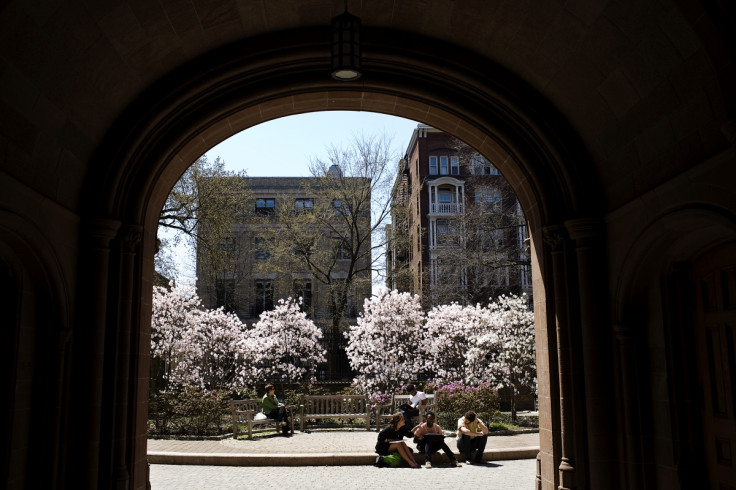Bernie Sanders is wrong about US tuition fees, subsidies don't help students

Tuition fees are a huge issue in the US; socialist Democratic presidential candidate Bernie Sanders — who just recorded a resounding win in the New Hampshire primary — wants to scrap it altogether at public colleges, as well as more heavily subsidising student loans.
"Free Harvard, Fair Harvard", a campaign sponsored by Ron Unz and Stephen Hsu, wants to do the same privately, albeit just for Harvard.
The United States student debt pile has grown to $1.3trn, and around 11.5% of it is delinquent. This rising pile — projected to double by 2050 — comes from the astonishing cost of attending US colleges. Out-of-state students must fork out an average $33,000 per year (£22,700) for tuition and living costs at public four-year colleges, and private colleges are even more expensive.
However, a recent paper suggests Unz, Hsu and Sanders could be focusing on the wrong thing entirely, and many of their moves could make things worse.
I'm a fairly sceptical libertarian. I'm perfectly willing to give up one of my libertarian, laissez faire or market beliefs if I see strong evidence that it's false.
I used to think that markets in schooling would make a huge difference to education — now I think the difference will be small. I used to think that markets alone could solve climate change, now I think that a carbon tax might be necessary. I used to believe in completely open borders, now I think that some restriction could potentially be better.
But now and again a new piece of evidence comes along that makes me think "what if libertarianism happens to be true?" It happens every so often: a strikingly strong piece of empirical evidence for the libertarian worldview of property rights, contracts, and not much government interference.
A new NBER paper on US college tuition fees, by Grey Gordon and Aaron Hedlund, is the latest example. According to Gordon and Hedlund's evidence, it's demand, not any problem with the market for supply, that's driving ever-escalating prices. In fact, it's mainly government meddling — in the form of subsidy for student loans — that's causing the hikes.
Their data shows that the massively-increased generosity of the Federal Student Loans Programme alone would have driven a 102% increase in net tuition between 1987 and 2010, without any other compensating or compounding trends. When you combine that with an increase in the 'college premium' — the extra salary you can hope to earn from earning a degree — these simple demand trends can more than explain the observed rise in costs.
In fact, colleges may well have got less greedy, the market may have got more competitive, and technology may have actually made it cheaper to deliver education. Baumol's Cost Disease — the idea that industries employing high skilled labour will see continual cost increases despite no compensating increases in productivity — seems to play no part at all.
There are other reasons to oppose further increases in subsidies for college attendance in the US. We know that graduates earn more than non-graduates, especially graduates of the best — and most expensive — public and private colleges. But we also know, from a recent job market paper from economist Stephanie Chapman, that the main effect of extra debt is to make graduates work harder and in more productive (i.e. higher paying) jobs, not necessarily a bad outcome.
She finds that students with thousands of dollars of extra debt, but who are otherwise similar to those qualifying for merit aid programmes, close the debt gap within 2-3 years of finishing college. It's true they have less freedom to pursue jobs with mainly non-pecuniary benefits, perhaps starting fewer bands and doing less painting, but the burden is manageable.
What's more, Bernie Sanders's claim that expanding college yet further—around two thirds go already—will give more people routes into the middle class and reduce inequality, is not borne out by the data either. Though income is a strong predictor of income, it does not make a large contribution to inequality — most of the variation in inequality is within-different classes of education not between it.
Around 23% of those with college degrees have incomes lower than the median of those who have graduated from high school but not attended college. In fact Richard Breen and Inkwan Chung conclude in a recent paper that "any feasible educational policy is likely to have only a minor impact on income inequality". There is also a growing body of evidence that an increasing amount of higher education is undertaken to signal status orability, rather than expand skills.
If we want tuition fees to fall, then the best approach may not be Bernie's plan for yet further subsidies, but scrapping the system of subsidies entirely. Even a sceptical libertarian will have to chalk this one down as a win for libertarian predictions and simple unintended consequences.
Ben Southwood is Head of Research at the Adam Smith Institute
© Copyright IBTimes 2025. All rights reserved.




















